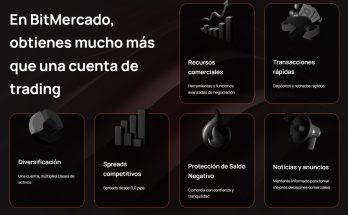Enhancing fuel efficiency plays a crucial role in managing any transportation or logistics business. It can significantly affect a company’s profitability, particularly when fuel costs rise. For fleet operators, business gas cards crucial to continually seek methods to enhance fuel economy and overall efficiency. However, let’s begin by defining what fuel economy is and exploring various strategies to develop a fleet that is more fuel-efficient. When businesses comprehend the necessary steps, they can decrease fuel usage and enjoy increased savings on fuel costs for their operations. This blog post will delve into various methods to manage a fuel-efficient fleet, enabling you to get the most value from every dollar allocated to fuel.
How is fleet fuel efficiency defined?
Fleet fuel economy refers to the average fuel efficiency of a fleet, calculated in miles per gallon (MPG). This metric is crucial as it influences both the cost-efficiency and environmental footprint of fleet operations. When a fleet has better fuel economy, it means the vehicles are utilizing fuel more effectively, covering greater distances with less fuel. This results in decreased operational expenses and fewer greenhouse gas emissions. Fleet fuel efficiency encompasses the variety of vehicles in use, their upkeep, driving habits, and the optimization of routes. Enhancing fleet fuel economy is frequently a major issue for fleet managers seeking to boost their fleet’s overall performance.
What makes fleet fuel efficiency important?
Prior to grasping ways to enhance fuel efficiency, it’s crucial to recognize the standard fuel economy of your fleet and the reasons for striving for the highest possible fuel efficiency. Superior fuel efficiency allows for greater distances to be traveled with less fuel, resulting in reduced operational expenses and savings on fleet fuel. Consider a scenario where a fleet of 100 trucks, each achieving an average of 6.5 miles per gallon and covering 120,000 miles each year, collectively consumes approximately 1.85 million gallons of fuel. With diesel priced at $3.00 per gallon on average, the total cost for fuel would exceed $5.5 million. Implementing even minor enhancements in fuel efficiency can result in significant cost reductions. For instance, a 5% boost in miles per gallon (MPG) across the whole fleet could lead to savings exceeding $275,000 each year.
Ways to Enhance Fuel Efficiency in Fleets
Select vehicles that offer high fuel efficiency.
Starting with fuel-efficient vehicles is a clear step toward enhancing fuel economy in your fleet. These vehicles are equipped with features such as lightweight materials, streamlined designs, and engines that maximize efficiency. Hybrid and electric vehicles present alternative choices for enhancing fuel efficiency, provided they align with your business needs. Opting for vehicles with better fuel economy can reduce the amount of fuel consumed per mile, resulting in greater savings on fuel costs. These alternatives generate less pollution, thereby minimizing environmental harm. For fleet operators aiming to decrease fuel expenses in fleet management, investing in these vehicles is a wise choice.
Consistently perform maintenance and servicing tasks.
Routine vehicle upkeep plays a crucial role in enhancing fuel efficiency for fleets. It ensures that each vehicle is functioning at peak performance while optimizing fuel consumption. When engines undergo consistent tune-ups and oil changes, they operate more efficiently, ultimately consuming less fuel. Adequate tire care can decrease rolling resistance, allowing the engine to exert less effort. Keeping an air filter clean contributes to improved fuel economy by allowing enhanced airflow to the engine, thereby optimizing combustion. Routine vehicle maintenance prevents minor issues from developing into significant problems, which not only prolongs the life of fleet vehicles but also boosts fuel efficiency.
Instruct drivers on methods for driving that optimize fuel efficiency.
Training drivers and their behavior significantly influence the fuel efficiency of a fleet. Promoting the use of fuel-efficient driving methods, such as keeping a consistent speed, steering clear of sudden acceleration, and being mindful of traffic conditions, can result in greater fuel savings. Drivers who practice good driving habits can enhance vehicle upkeep and safety, resulting in extended vehicle lifespan, reduced maintenance expenses, and improved driving safety conditions.
Execute route scheduling and enhancement.
Another intelligent approach to enhancing fleet fuel efficiency is the implementation of route planning and optimization. By leveraging sophisticated software, managers can examine elements like traffic trends, road conditions, and distances to design the most effective routes for their vehicles. This reduces the need for unnecessary travel, minimizes idle time in traffic, and shortens the distances traveled, all of which contribute to reduced fuel usage. For instance, a fleet that strategically plans routes to bypass traffic-heavy zones can greatly decrease the time vehicles spend idling, a key factor in fuel inefficiency. Routing enhances scheduling efficiency, boosts operational productivity, and leads to greater savings on fuel costs.
Make use of telematics and systems for managing your fleet.
Modern tools such as GPS tracking and route optimization software assist fleets in selecting the most efficient paths, resulting in reduced mileage and fuel use. Telematics systems offer crucial insights into vehicle performance and driver conduct that enable fleet managers to track speed, idling duration, and route deviations affecting fuel efficiency. Tools such as predictive analytics have the ability to anticipate maintenance requirements, avert malfunctions, and ensure vehicles function correctly. The gathering and analysis of real-time data are designed to support informed decision-making, ultimately enhancing fuel efficiency for fleets. Utilizing these features allows operators to lower fuel expenses and enhance their operations.
Keep an eye on fuel usage and record the information.
By adopting a fleet monitoring system, fuel efficiency within a fleet can be enhanced as it offers in-depth insights and management over fuel consumption. These systems monitor the fuel usage of each vehicle, enabling fleet managers to identify trends and recognize problems such as unnecessary idling, inefficient routing, or subpar vehicle performance. With this data, managers have the ability to optimize routes and maintenance plans, as well as educate drivers on efficient driving techniques. Additionally, these systems can notify managers about potential problems such as fuel theft or leaks, ensuring that fuel purchased is monitored and utilized correctly. Providing a summary of fuel usage enables fleet operators to engage in more effective budgeting and forecasting, potentially boosting fuel savings.
Minimize idle duration.
Decreasing the time vehicles spend idling is an uncomplicated and straightforward strategy to enhance the fuel efficiency of your fleet. When a vehicle idles, it results in fuel wastage. Typically, a heavy-duty truck that idles will use approximately 0.8 gallons of fuel every hour. In a fleet, even a few vehicles idling can accumulate significant fuel consumption over an extended period. By taking measures to minimize idling, such as switching off engines during deliveries or while waiting, fleets can achieve a reduction in their fuel consumption. Systems like automatic engine shut-off or telematics can assist in better overseeing and controlling idling durations. Reducing idling not only conserves fuel but also minimizes engine wear and reduces emissions. Reducing idle time is a wise practice to enhance fuel efficiency for fleets, particularly those functioning in urban or residential zones where idling laws might be enforced.
Follow environmental rules and ensure compliance.
Adhering to environmental regulations is not solely a legal obligation; it also plays a crucial role in enhancing fleet fuel efficiency. These fleet compliance regulations establish benchmarks for emissions and fuel consumption, encouraging fleet operators to adopt more fuel-efficient vehicles and practices. Typically, compliance entails the use of cleaner fuel types, transitioning to vehicles with improved emissions standards, and adopting superior driving techniques. Rules could additionally promote the adoption of aerodynamic designs, tires with low rolling resistance, and cutting-edge engine technologies to enhance fuel efficiency. In general, adhering to environmental regulations will aid your business in becoming more sustainable while boosting the fuel economy of your fleet.
Introduce a fuel card system.
An alternative method to enhance fuel efficiency is the introduction of a fleet fuel card for drivers. This card offers numerous functions and advantages aimed at monitoring, evaluating, and minimizing excessive fuel usage. Fleet managers need to take all these factors into account when tackling fuel efficiency issues. First, they should mandate that drivers record vehicle odometer readings during refueling to establish benchmarks for miles per gallon (MPG) and cost per mile (CPM). Anomalies frequently suggest underlying vehicle issues that may necessitate maintenance. Ignoring these maintenance needs can lead to decreased efficiency. When it’s time for drivers to refuel, it’s advisable to opt for commercial fuel stations because they are tailored to speed up the refueling process. Shorter lines mean that vehicles will idle less while waiting for a pump to become available. Prior to making purchases, establish spending limits on fuel cards that align with the vehicle’s tank capacity and typical route usage.



